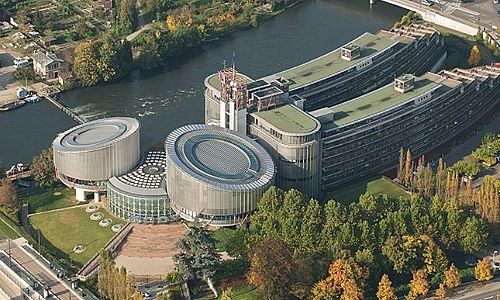UBS has suffered a setback in a high-profile French court case over hidden offshore accounts for the wealthy in Switzerland. The Swiss bank will have to pay a billion-euro bail as the case proceeds.
How did the world's largest private bank end up at a court a which deals with religious persecution, torture and other violations of human rights? The Zurich-based bank was ordered to pay 1.1 billion in the form of a corporate bond in a French tax evasion case nearly two years ago, a decision it has doggedly appealed since then.
The bank lodged an unusual human rights appeal nearly one year ago, part of a vigorous defense of its dealings in France after officials stepped up their pursuit of tax evasion. To little effect, it emerged on Thursday.
While Strasbourg agreed to hear the case, Europe's highest human rights court ruled that UBS rightly had to cough up the 1.1 billion euros. The bail was adequate, and UBS was in a position to pay, the judges reasoned.
Billion-Euro Bond
«The Court held that the security required constituted an interim measure which did not prejudge the outcome of the proceedings and that the amount had been assessed by the domestic judges, using particularly thorough reasoning, on the basis of the findings of the investigations, the alleged facts, the scale of the offences and the potential harm, and the fine payable in the event of a conviction,» the European Court of Human Rights said in a statement.
«The assessment had also been based explicitly on the resources of the applicant bank, which had been afforded adequate procedural safeguards.»
UBS said it disagreed with the court's reasoning.
The facts do not support the magnitude of the bail and we have a fiduciary responsibility to protect both the financial and reputational interests of our stakeholders,» the bank said in a statement. «We will continue to strive for a solution to the proceedings in France while strongly defending our position.»
Blow to UBS
The move is a major blow to UBS. The French case is one of the two largest cases facing the bank, besides a mortgage mis-selling probe in the U.S. which is expected to cost billions to settle. The bank has promised richer shareholder payouts once its billion-dollar scandals and probes have been settled.
The French case has also spawned renewed scrutiny of Raoul Weil, who ran UBS' private bank until 2008. The Swiss banker had faced charges in the U.S., of which he was acquitted.

































